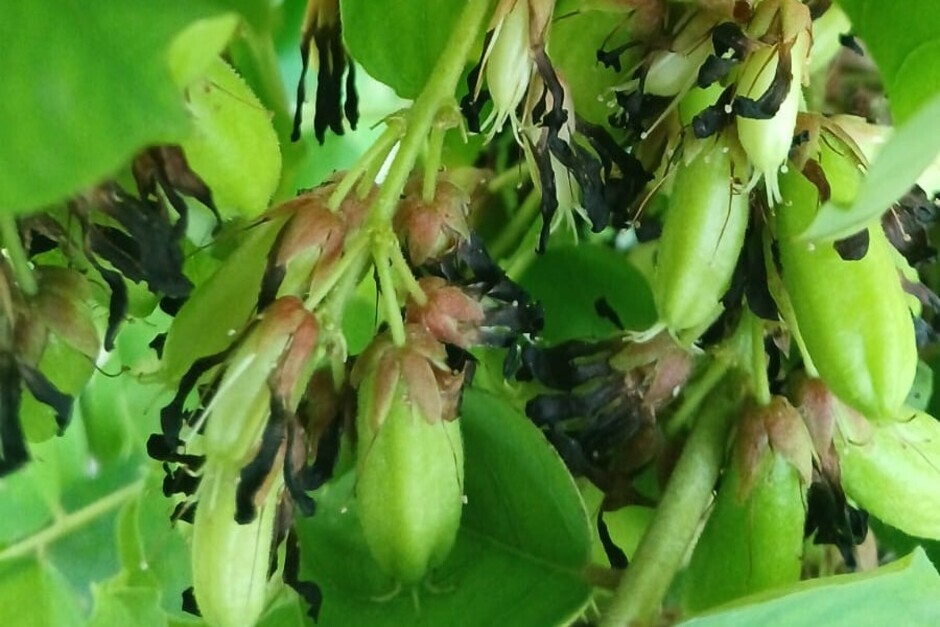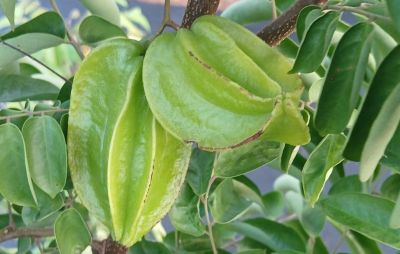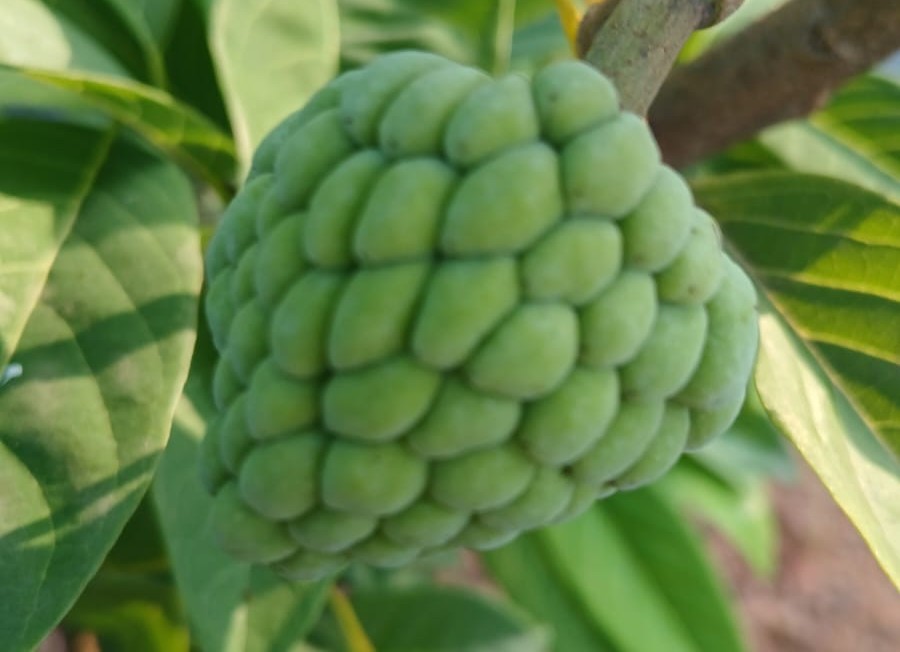From Orchard to Achievement: Life Lessons for Success

Harvest Your Potential: Life Lessons from Fruit Farming to Shine and Win
Have you ever admired the crunchy, shiny apples hanging from orchards in Kashmir, or the delicate fuzz of a New Zealand kiwi? Perhaps you've seen golden apricots ripening in Switzerland, lush bananas swaying in Guyana's breeze, or the rich aroma of Costa Rican coffee beans before they’re roasted to perfection. And who can forget the velvety pods of Ghana’s cocoa, the very heart of the world’s finest chocolate? These treasures journey from farm to fork, nurtured with care, patience, and expertise—each fruit a testament to the farmer’s dedication, much like students shaping their knowledge and skills over time.
Growing up, I had the privilege of accompanying my beloved grandfather—a brilliant farmer—on his morning and evening rounds through his orchard. He would meticulously tend to his coconut, jackfruit, mango, banana, gooseberry, and pomegranate trees, each requiring a different kind of care and attention. Coconut trees needed deep-rooted nourishment to withstand salty soil, while mango trees thrived with minimal watering, relying on the rhythms of nature. Guavas demanded precise pruning to flourish, and cashew trees thrived in dry, rocky terrain with little intervention. I watched him prune, nourish, and protect them, adapting his approach to the unique needs of every fruit.
Decades later, as I reflect on those moments, I realize how deeply his farming principles align with all aspects of life—especially studies. Just as each fruit tree requires specific care, every subject demands a unique approach. Mathematics, like coconut trees, thrives on solid foundational roots, while humanities, like delicate cashew trees, grow best with thoughtful interpretation. Science, much like mango trees, unfolds its richness gradually with curiosity, and arts, like the sprawling jackfruit tree, require vision and creativity to fully appreciate.

How Some Fruit Trees Mirror Different Subjects:
- Coconut Trees: Stand tall with deep roots, requiring years of patience before yielding their rewards. Just like mathematics, they demand a strong foundation built over time, with consistent practice reinforcing core concepts.
- Mango Trees: Grow steadily and surprise us with their sweet fruit after years of nurturing—much like science, which unfolds its wonders when approached with curiosity and patience.
- Cashew Trees: Are delicate, needing careful handling to ensure proper growth, much like humanities, where interpretation, critical thinking, and sensitivity to perspectives bring out their richness.
- Jackfruit Trees: Produce large, complex fruit that requires effort to process—similar to arts, where creativity, openness to multiple viewpoints, and an appreciation for detail lead to mastery.
- Banana Plants: Grow quickly and offer continuous yields, just as language and communication skills can develop rapidly with regular practice and application.
- Pomegranate Trees: Requiring careful nurturing to produce their jewel-like seeds, resemble engineering or problem-solving, where precision and structured thinking result in fruitful outcomes.

Whether we have hands in the soil or simply admire nature’s rhythms, farming holds a universal truth—growth takes time, resilience, and thoughtful care. The principles that guided my grandfather’s success are the same ones that shape students into sharper, smarter learners. Just as an orchard flourishes with the right balance of patience, hard work, and adaptability, so too can our studies and personal growth.
In this post, we explore 15 life lessons from fruit farming that offer invaluable wisdom for students striving to shine and win. Just as a farmer learns to cultivate an orchard with diverse trees, students must learn to nurture their knowledge with varied approaches. Because learning—just like growing an orchard—isn’t about rushing to the harvest. It’s about nurturing the process, adapting to challenges, and celebrating growth along the way. Just as a farmer cultivates an orchard, you are cultivating your knowledge and skills. Let’s discover the powerful lessons the natural world offers for your learning journey.
Life Lessons from the Orchard:
- Cultivate Patience (Coconut Trees – Deep Roots Take Time) Coconut trees don’t bear fruit overnight. They grow steadily, sending roots deep into salty, alkaline soil, strengthening themselves before yielding results. Similarly, mastering subjects like mathematics and science requires deep foundational understanding—patience is key. The long hours spent practicing formulas and concepts will eventually lead to fluency, just as coconut trees reward patient farmers with nutritious fruit after years of care.
- Embrace Resilience (Cashew Trees – Thriving in Dry, Hilly Terrain) Cashew trees flourish in arid, rocky landscapes where water is scarce, yet they continue to grow, adapting to their conditions. Students, too, must develop resilience—when facing tough subjects, challenging tests, or personal setbacks, adapting to difficulties will help them thrive. Just as cashew trees survive by conserving water, students must manage their energy wisely, focusing on improvement rather than dwelling on difficulties.
- Understand Interconnectedness (Moringa & Organic Slurries – How Everything Works Together) Farmers use moringa leaf extract and organic slurries to enrich soil, improving tree health. Similarly, knowledge across subjects is interconnected—physics principles help in chemistry, historical events impact literature, and mathematical logic strengthens problem-solving skills. Understanding these connections makes learning richer and more meaningful.
- Accept the Cyclical Nature of Learning (Mango Trees – Seasons of Growth) Mango trees don’t need frequent watering—they follow their natural cycle of flowering, fruiting, and dormancy. Just like study phases—preparation, exams, breaks, and learning new topics—students must accept that progress happens in cycles. Some seasons are intense, while others allow for reflection and renewal.
- Value Hard Work and Dedication (Banana Trees – Constant Effort, Continuous Yield) Bananas are high-maintenance, demanding regular nutrients like NPK fertilizers and organic slurries to ensure steady fruit production. Learning, too, is a continuous effort—regular revision, diligent practice, and persistent dedication lead to academic success. Just as a banana plantation rewards consistent care with frequent harvests, disciplined studying ensures long-term retention.
- Practice Observation and Adaptability (Guava Trees – Knowing When to Prune) Guava trees require thoughtful pruning to produce better fruit. A farmer must observe growth patterns and trim unnecessary branches. Students, too, should observe their study habits—eliminate distractions, adapt techniques, and refine their approach for better results.
- Learn the Power of Nurturing (Pomegranate Trees – Careful Handling Brings Rich Rewards) Pomegranate trees need gentle nurturing—timely watering and nutrient-rich soil management. Building knowledge is similar—it thrives when students nurture curiosity, seek guidance from mentors, and actively engage with learning.
- Appreciate the Rewards of Delayed Gratification (Coconut & Mango – Years of Waiting for Sweet Rewards) Farmers wait years for their first mango and coconut harvest, knowing that patience leads to abundant fruit. Similarly, delayed gratification in studies—working hard without immediate rewards—pays off in long-term success.
- Manage Risks and Uncertainty (Neem Oil & Chemical Pesticides – Preventing Damage Before It Happens) Farmers anticipate threats—pests, fungal infections, climate changes—and take precautions with neem oil sprays and pest control. Students must similarly prepare for challenges, stay alert, and strategize for exams, career choices, and life decisions.
- Understand the Importance of Preparation (Winter Months – Building Strength for Growth) Orchard management in winter focuses on preparing for the next season—fortifying soil, planning crop rotations, and ensuring trees are ready for growth. Likewise, early revision, structured study plans, and preparation ensure success in exams and future opportunities.
- Respect Natural Learning Processes (Cashew & Coconut – Growing at Their Own Pace) Cashew trees don’t need much watering, and coconuts thrive in salty soil. Each student has a unique learning style—some grasp concepts quickly, others take longer. Respecting individual learning processes reduces stress and promotes effective growth.
- Master the Art of Using the Right Tools (Augers, Tillers, Earth Movers – Some You Own, Some You Rent) Farmers know that tackling big jobs efficiently requires the right equipment – from small tools they own like augers to large earth movers they hire for specific tasks. Learning is similar! You own certain tools – your brain, your textbooks, maybe a laptop. But for bigger or different challenges, you might need to 'hire' other resources – using the library, accessing online learning platforms, joining study groups, or even seeking help from a tutor or teacher (like hiring that earth mover for a tough spot). Knowing what tools are available and when to use them makes your learning journey much smoother and more effective.
- Learn to Measure and Adjust (pH Meter, Moisture Content – Understanding Your "Soil") Great farmers don't guess; they measure! They check soil salinity, pH, and moisture to truly understand what their plants need and adjust watering and nutrients accordingly. As a student, you are cultivating your own growth, and you need to measure your "soil" too. This means checking your understanding through practice tests, paying attention to teacher feedback, noticing when you're feeling overwhelmed or losing focus, and honestly assessing what you know and what you don't. Just like a farmer adjusts based on readings, you need to adjust your study methods, seek clarification, or take a break based on your self-assessment and feedback. Being analytical about your own learning helps you grow in the right conditions.
- Embrace Continuous Learning (Mango Seasons – Never Stop Improving) Mango farmers experiment with pruning, irrigation, and fertilizers to increase yield. Students must embrace lifelong learning, adapt to new techniques, and continuously refine their skills.
- Find Satisfaction in Tangible Results (Harvesting Time – The Joy of Hard Work Paying Off) When farmers harvest their fruit after months of effort, the satisfaction is immense. For students, completing assignments, acing tests, and acquiring new knowledge are tangible rewards for consistent work.
- Foster Stewardship and Sustainability (Organic Farming – Nurturing a Healthy Future) Farmers using organic techniques like groundnut cake and moringa extracts ensure sustainability. Students must think long-term—develop ethical learning habits, help others, and take responsibility for their knowledge and future.
- Recognize the Beauty in the Process (Blossoming Orchards – Enjoying Every Step) Beyond the final harvest, farmers appreciate the beauty of growth—flowering trees, the transformation of buds into fruit. Students should cherish the learning journey, creativity, friendships, and intellectual growth beyond grades.
Just as a farmer carefully tends to each tree, recognizing its unique needs and adapting to changing conditions, students must cultivate their own learning journeys with patience, resilience, and strategy. Whether tackling mathematics like nourishing deep-rooted coconut trees, embracing the long-term rewards of science like mango cultivation, or pruning distractions for clarity like a guava farmer, the wisdom of fruit farming offers profound lessons for academic success. Growth is a process—it demands nurturing, observation, and adaptability. But when approached with dedication and awareness, it leads to a rich harvest of knowledge, confidence, and personal excellence.
As you strive to shine and win in your studies, remember nature’s quiet teachings—your education, like an orchard, will flourish when you respect the process, learn from setbacks, and persist with unwavering commitment. Keep tending to your learning, and soon, you’ll reap the fruits of your hard work!
